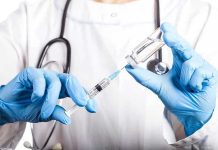
President Trump’s battle to slash prescription drug costs gains momentum with sweeping reforms to the outdated biosimilar approval process that could save Americans billions while cutting Big Pharma’s stranglehold on vital medications.
Key Takeaways
- Biosimilars have already saved Americans $36 billion and provided over 495 million days of patient therapy since the FDA approved the first one in 2015.
- The current FDA approval process for biosimilars is unnecessarily complex and costly, requiring up to $300 million in development costs per drug.
- President Trump signed executive orders in 2025 specifically targeting prescription drug costs, including measures to streamline biosimilar approvals.
- Only 10% of 118 biologic drugs losing patent protection in the next decade have biosimilar alternatives in development, highlighting a massive opportunity for cost savings.
- Reforming the approval process could dramatically increase competition and significantly lower healthcare costs for millions of Americans.
Trump’s Executive Orders Target Prescription Drug Crisis
President Trump’s administration continues its aggressive push to lower healthcare costs with two executive orders signed in 2025 that directly address the exorbitant prices Americans pay for prescription medications. These orders, titled “Lowering Drug Prices by Once Again Putting Americans First” and “Delivering Most-Favored Nation Prescription Drug Pricing to American Patients,” specifically target the FDA’s outdated approval processes that have allowed pharmaceutical companies to maintain monopolistic pricing structures for critical medications while everyday Americans struggle to afford their prescriptions.
The executive orders focus on streamlining drug importation from Canada, accelerating generic and biosimilar approvals, and eliminating anti-competitive practices by pharmaceutical manufacturers. President Trump has specifically directed the FDA to “take steps to streamline and improve the Importation Program under section 804 of the Federal Food, Drug, and Cosmetic Act to make it easier for States to obtain approval without sacrificing safety or quality.”
Are you tired of paying too much for medications?
I just introduced a bill to make your prescription drugs more affordable: The Biosimilar Red Tape Elimination Act.
“Biosimilars” – generic alternatives to name-brand medications – have the potential to significantly reduce the…
— Mike Lee (@SenMikeLee) June 9, 2025
The Biosimilar Opportunity America Is Missing
Biosimilars represent one of the most promising opportunities to dramatically reduce healthcare costs in America. Unlike traditional generic drugs, biosimilars are complex medications that provide therapeutic alternatives to expensive biologic drugs used to treat cancer, rheumatoid arthritis, and other serious conditions. Since 2015, these alternatives have generated $36 billion in savings and provided treatment for nearly half a billion patient days. Yet America’s biosimilar market remains dramatically underdeveloped compared to Europe and other regions due to regulatory hurdles.
“Biosimilar streamlining isn’t just a bureaucratic fix or a regulatory refinement, it is a critical solution to address the ‘biosimilar void,’ bringing high-quality, affordable medicines to market more quickly and giving patients better, faster access to the treatments they need,” said the Biosimilars Council.
The numbers tell a shocking story about missed opportunities: only 10% of the 118 biologic drugs losing patent protection in the next decade have biosimilar alternatives in development. This lack of competition means Americans continue paying premium prices for medications that could be available at a fraction of the cost. The primary culprit is an approval process that remains stuck in the past, requiring extensive and often redundant clinical trials that can cost upwards of $300 million per drug.
A post on drug patents, exclusivity periods, and Medicare negotiation, and how pharma is trying to use the complexity to pull a fast one to grab $10 billion.
A pharma company gets 20 years of patent protection on a drug, starting from date of filing. However, due to lengthy…
— John Arnold (@JohnArnoldFndtn) May 6, 2025
How Regulatory Reform Could Slash Healthcare Costs
The Biosimilars Council and conservative lawmakers have identified specific reforms that could dramatically increase competition in the pharmaceutical market. Chief among these is eliminating unnecessary comparative clinical efficacy studies that can account for half the total development cost of a biosimilar without significantly improving safety or efficacy outcomes. Modern analytical methods can now confirm biosimilarity more quickly and accurately than ever before, making many traditional testing requirements obsolete.
“Imagine a world where cutting-edge medicines developed to treat complex conditions like cancer and autoimmune diseases reach patients faster and at a lower cost,” said the Biosimilars Council.
Conservative senators including Mike Lee and Rand Paul have been vocal advocates for these reforms, recognizing that the current system primarily benefits pharmaceutical companies at the expense of American taxpayers and patients. By adopting a more streamlined approach similar to what the European Medicines Agency has implemented, the FDA could dramatically increase the number of biosimilars entering the market while maintaining rigorous safety standards. The result would be greater competition, more patient choice, and substantially lower prices.
America First Drug Pricing Requires Bold Action
President Trump’s executive orders represent a direct challenge to the pharmaceutical industry’s pricing power and signal that his administration prioritizes American patients over corporate profits. The orders specifically direct the FDA to issue reports and recommendations for accelerating drug approvals and reducing anti-competitive behavior. These measures align with congressional efforts to ease market entry for lower-cost alternatives and address tactics that drug companies use to maintain artificially high prices.
The reform of biosimilar approval processes represents a rare opportunity for bipartisan action that serves American interests first. By modernizing outdated regulations, the administration can unlock billions in potential savings while ensuring patients have access to the medications they need. This approach exemplifies President Trump’s commitment to market-based solutions that increase competition and drive down costs without compromising quality or safety. For millions of Americans struggling with high prescription costs, these reforms cannot come soon enough.









